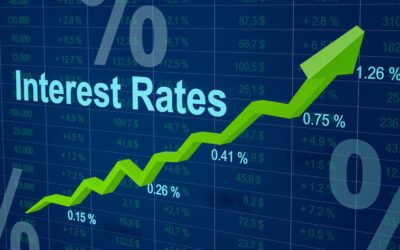At the height of the COVID-19 pandemic, with thousands of small businesses under huge financial strain or unable to trade at all, the UK government offered a lifeline in the form of Bounce Back Loans.
The aim of the Bounce Back Loan Scheme (BBLS) was to provide SMEs with rapid access to finance at a time when many businesses were experiencing a major cash flow crisis. Run in conjunction with 29 banks and other lenders, the BBLS provided loans of between £2,000 and £50,000, up to a maximum of 25% of a company’s total turnover.
Loans were offered on terms of six years, extendable to up to 10 years under certain circumstances. But now, as the 12 month no-repayment window for the very last Bounce Back Loans to be granted runs out, there are very real concerns that tens of thousands of recipient businesses are unable to service the debts.
Right at the very start of the scheme, banks involved warned that as many as 40% to 50% of BBLS borrowers could end up defaulting on the loans. Fast forward two years, and a range of factors have contributed to a post-pandemic recovery much more sluggish than ministers at the time would have hoped for.
Put simply, with energy and raw material costs soaring and trading conditions still hampered by the post-COVID fallout, many small businesses are struggling just as much as they were two years ago. Only now they have large bank loans to repay.
So what does this all mean for the directors of businesses who accepted the BBLS lifeline but now, as the banks predicted, are at risk on defaulting on the repayments? Are you, as you would be for other types of business loan, at risk of being held personally liable?
Watch the Terms and Conditions
The short answer is, not in most circumstances. Not if you are trading as a limited company, anyway. Bounce Back loans were offered without the requirement of a personal guarantee. Instead, the government offered 100% security to the participating lenders. Without a personal guarantee, there’s no recourse to pursue directors if the company becomes insolvent and can’t pay back the debt.
However, the terms and conditions of the BBLS state that the loans must be used to demonstrably provide an economic benefit to the business. That clause is there to cover misuse.
If a company enters formal insolvency proceedings having received a BBLS loan, the Insolvency Service will investigate use of the loan as part of its usual remit. If it is then found that the loan was not used in accordance with the terms, company directors could find themselves held personally liable.
The situation for sole traders is different. Unlike a limited company, there is no legal separation between the business entity a sole trader runs and themselves. So just as a sole trader not being able to pay back their debts is treated as a bankruptcy rather than an insolvency, sole traders who accepted a Bounce Back Loan are held liable for the debt as if it is a personal debt.
For in-depth advice on managing your company’s debts, contact our corporate recovery team today.




